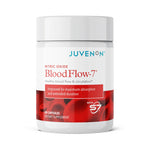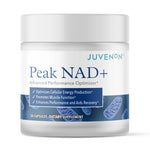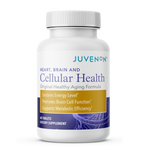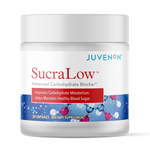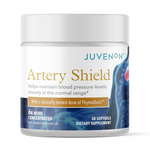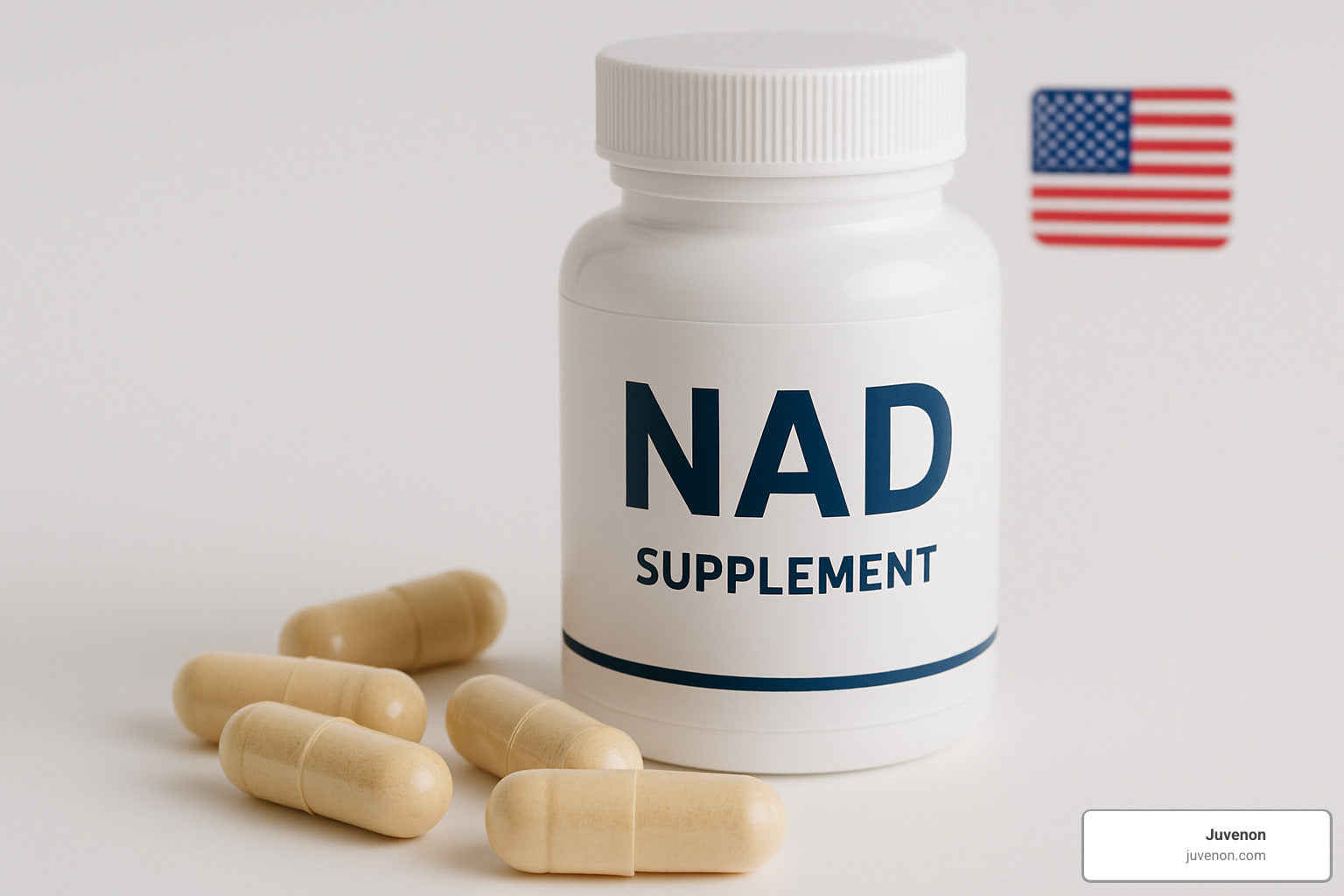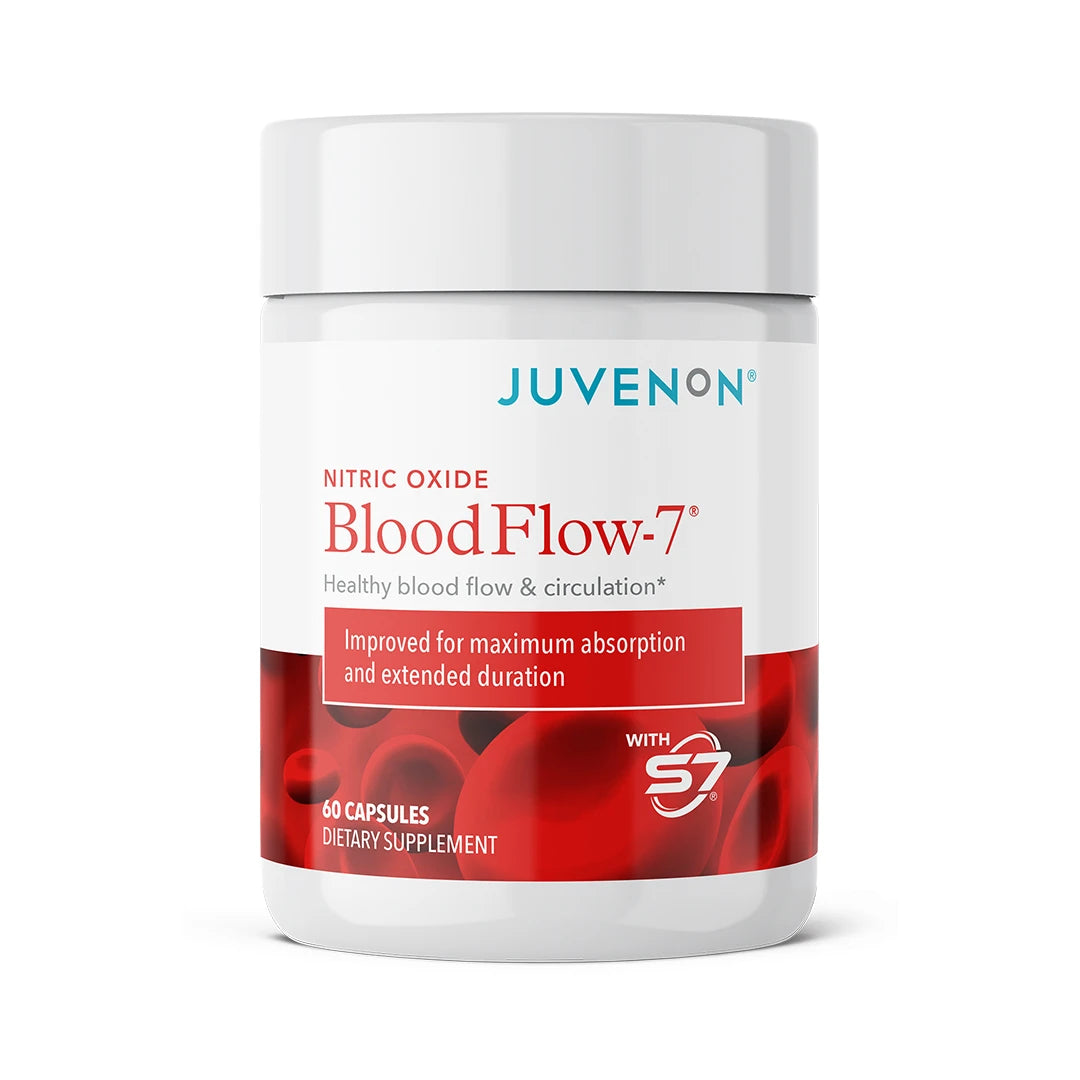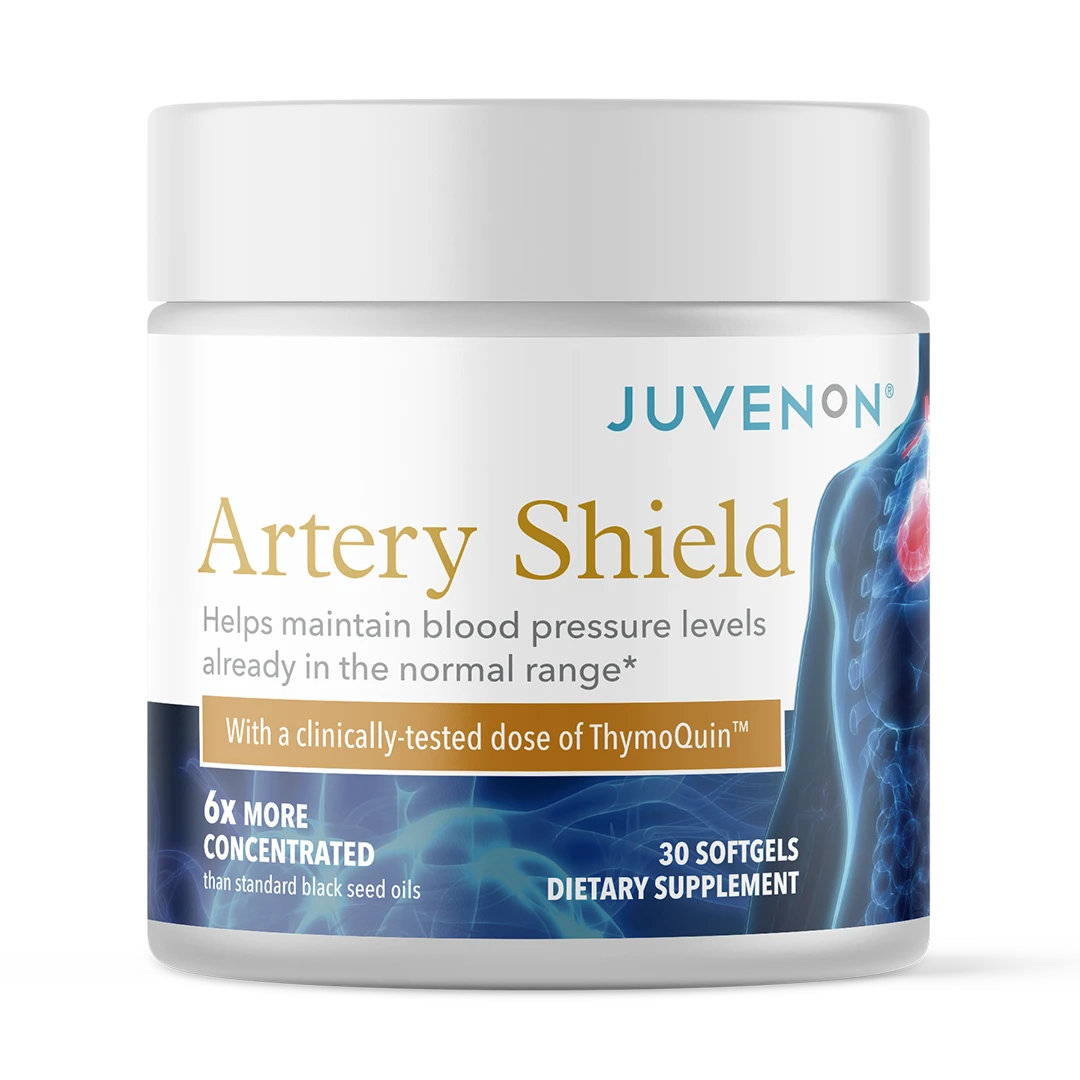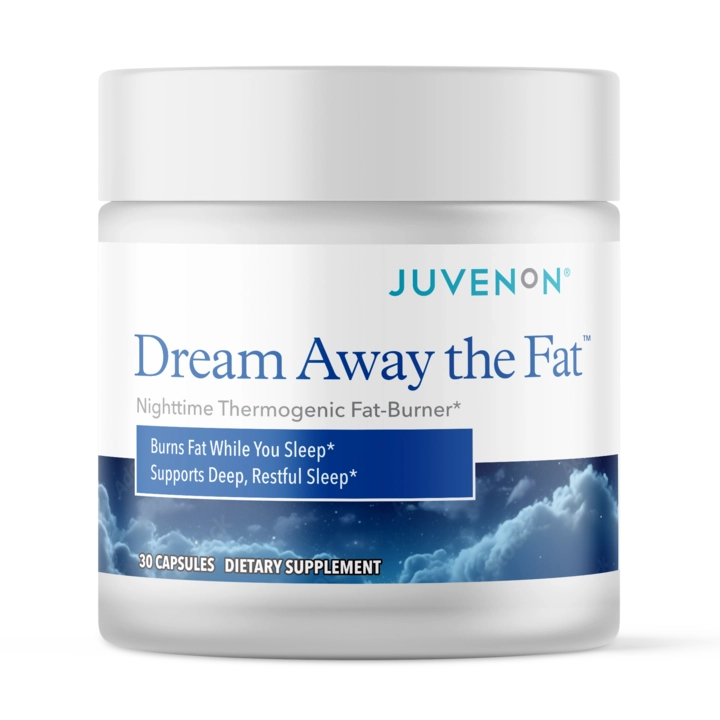
Getting sick is an unavoidable part of life. It happens to everyone from time to time. But, if you feel like you’re catching one illness after another, more may be going on.
Your immune system is responsible for fighting off foreign invaders who try to make you sick. If you come into contact with a virus or bacteria, your immune system swings into action to isolate and neutralize the pathogen.
A faltering immune system may be suffering from a lack of essential nutrients. Vitamin D is a significant player in how well your immune system works. Together, vitamin D and your immune system form a powerful disease-fighting team.
Studies show that a deficiency in vitamin D makes you more vulnerable to infections and even increases your risk for autoimmune disorders.(1, 2) It could be part of why you feel like you’re falling prey to every little germ that comes along.
Whether you want to decrease how often you catch a pesky cold or protect yourself from more serious diseases, vitamin D is vital for better health. Let’s dive deeper into vitamin D, your immune system, and what you can do to keep them working in harmony. We’ll look at:
- How vitamin D works in the body
- What happens if you’re deficient in vitamin D
- How vitamin D and the immune system work together
- Sources of vitamin D
- How our Immune Wellness supplement boosts your immune system with vitamin D
All About Vitamin D
Vitamin D is a fat-soluble vitamin that functions in bone health, immunity, cell growth, neuromuscular signaling, and glucose metabolism.(3) Without a regular source of vitamin D, whether from sunlight, food, or supplements, deficiency occurs.
Vitamin D is unique in that sunlight stimulates vitamin D production in the skin. When exposed to UV rays, a specialized hormone in the outermost layer of your skin is converted to pre-vitamin D3. Pre-vitamin D3 then circulates through the body and is converted by the liver and kidneys into the active form of vitamin D known as vitamin D3.(4) Vitamin D3 is the form of vitamin D your immune system needs for all its critical work.
Actions of vitamin D in the body
Until the last few decades, vitamin D was best known for its role in bone health. However, new research highlights the incredible link between vitamin D and the immune system. Turns out, vitamin D does more for your immune system than previously known. Its role in disease prevention is just as important as its bone-boosting effect.
The body needs vitamin D for:
- Adequate calcium absorption in the gut
- Strong bones and teeth
- Muscle contraction
- Nerve signaling between the brain and the rest of the body
- The immune system response
- Inhibition of inflammatory cytokines
Effects of vitamin D deficiency
Recent data reveals that an astounding 41% of adults in the US have insufficient levels of vitamin D.(5) This number is even higher in Black and Hispanic Americans likely because of higher melanin, a substance that provides pigment in the skin and happens to decrease UVM absorption and vitamin D synthesis. In addition, a majority of people do not get enough vitamin D either from the sun or their diet, increasing their risk of deficiency.(3)
Deficiency can result in:
- Soft bones and skeletal deformities (known as rickets in children)
- Bone pain
- Osteomalacia (weak and soft bones in adults)
- Dental abnormalities
- Potentially increased risk of cancer, heart disease, type 2 diabetes, and obesity, though research is ongoing.(3)
- Increased risk of autoimmune disease(1)
- Increased risk of respiratory infections(3)
Our modern lifestyles make it very easy to be deficient in vitamin D. However, factors beyond your control may also contribute to low levels.(6) Deficiency can result from:
- Spending too little time outdoors
- Having a darker skin tone (more melanin), which decreases vitamin D production from sunlight
- Living in the northern hemisphere, where sunlight is insufficient for vitamin D production for up to half the year
- Low intake from food sources
- Older age which may lead to a decrease in the ability to synthesize vitamin D
How Can Vitamin D Can Help Boost the Immune System?
Vitamin D is your immune system's best friend. Together, they protect you from not only everyday viruses and bacteria but also from autoimmune conditions in which your own immune system gets confused and attacks healthy organs and tissues. Without vitamin D, your immune system cannot do as good a job at keeping you healthy and illness-free.
Here’s how vitamin D and the immune system work together.
- Immune cells, including lymphocytes and macrophages, have vitamin D receptors, allowing them to respond to signals from vitamin D.(7)
- Vitamin D stimulates the anti-microbial functions of macrophages to eliminate pathogens.(8)
- Vitamin D boosts the production of anti-inflammatory T-cells and suppresses the production of pro-inflammatory T-cells.(9)
- Vitamin D supports the integrity of the lining of the intestines, helping maintain a balanced microbiome and preventing pathogens from passing into the body from the gut.(8)
- Vitamin D boosts immune cells that prevent self-intolerant cells (autoimmune cells) from getting out of control.(10)
It’s not just everyday acute illnesses that are impacted by vitamin D. Studies have revealed an interesting link between low levels of vitamin D and some chronic illnesses, such as
- Multiple Sclerosis
- Type 1 Diabetes
- Respiratory infections
- Some cancers
- Obesity
- COVID19
- Dementia
People with these conditions often have vitamin D deficiency.(10, 11, 12, 13) While more research is needed, based on our understanding of the link between vitamin D and the immune system, it’s safe to say maintaining a healthy level of vitamin D is critical for long-term health.
Getting Enough Vitamin D

Maintaining the amount of vitamin D your body needs year-round can be challenging. But your health depends on it. Preventing vitamin D deficiency could be your secret to immune health.
How Much Vitamin D Do You Need?
The recommended blood level of vitamin D is 20-50 ng/mL (or 50-125 nmol/L). Less than 20 ng/mL (or 50 nmol/L) is considered vitamin D deficient. The National Academies of Science provides recommended dietary allowances depending on your age.(3)
|
Age |
Recommended Dietary Allowance (RDA) |
|
0-12 months |
10 mcg (400 IU) |
|
1-18 years |
15 mcg (600 IU) |
|
19-70 years, pregnant and lactating women |
15 mcg (600 IU) |
|
>70 years |
20 mcg (800 IU) |
It’s important to note that different organizations recommend different vitamin D blood levels and daily intakes. For example, The Endocrine Society recommends blood levels of vitamin D over 30 mg/mL for optimal health and daily intake for adults closer to 37 mcg (or ~1500IU) to achieve this level.(13)
This is why our Immune Wellness formula contains 25 mcg (1000IU) of vitamin D3 to put you comfortably in the recommended range.
Sources of vitamin D
Sunlight
The sun is our primary source of vitamin D. However, most people don’t get enough direct sunlight on their skin to maintain optimal vitamin D levels.
The amount of time you need to spend in the sun to meet your vitamin D needs depends on the amount of exposed skin, the time of year, and the amount of melanin in an individual's skin. Estimates vary, but the most recent data recommends:
- Spring and summer - 5-15 minutes in the sun during peak sunshine hours with about ⅓ of the skin exposed.
- Fall and winter - Minimum of 45 minutes during peak sunshine hours with at least 10% of skin exposed.(14, 15)
While the ability to make vitamin D from sunlight is an incredible evolutionary advantage, our modern lifestyles are mostly lived indoors. In addition, those who live in the northern hemisphere are at increased risk of vitamin D deficiency due to insufficient sunlight in the winter months. Over-exposure to the sun also increases the risk of skin damage and skin cancer, making it tricky to find the right balance of sun exposure and skin protection.
What Foods Contain Vitamin D?
Vitamin D is relatively scarce in foods. Because it is a fat-soluble vitamin, it is found in small amounts in egg yolks and select fatty fish. To address the widespread deficiency of this essential nutrient, some foods, such as milk, are fortified with vitamin D.
Most people do not consume enough vitamin D-containing foods on a regular basis to meet their body’s needs.(3)Additional concerns, such as the mercury content of many fish, may limit the amounts of these foods it’s safe to eat.
|
Food |
Serving Size |
IUs of Vitamin D |
|
Cod liver oil |
1 Tbsp |
1,360 IU |
|
Sockeye Salmon, cooked |
3 oz |
570 IU |
|
Milk, 2%, vitamin D fortified |
1 cup |
120 IU |
|
Plant milk (soy, almond, etc), vitamin D fortified |
1 cup |
100-144 IU (depends on brand) |
|
Egg |
1 whole (including yolk which contains the vitamin D) |
44 IU |
|
Tuna, canned in water |
3 oz |
40 IU |
Supplements
Many people find supplementing with vitamin D is the best way to stay on top of this essential nutrient. Those who are concerned with their immune function may also find a vitamin D supplement to be beneficial for extra insurance.
Vitamin D3 is the most active form of vitamin D and, therefore, most effective for your immune system. A quality supplement should list D3 or cholecalciferol as its source of vitamin D. It’s exactly what we provide in our Immune Wellness.
Junevon Immune Wellness is a daily supplement to support your immune system with a blend of evidenced-based, science-backed nutrients, including the all-important vitamin D.
By blending a powerful dose of vitamin D with other immune-boosting ingredients such as vitamin C, zinc, beta-glucan, and quercetin, Juvenon Immune Wellness prepares your body's natural defense system to do what it does best.
The addition of our Immune Wellness formula will fill any gaps in your vitamin D intake and keep your immune system operating at peak performance.
Takeaways
Vitamin D helps your immune system function at its best. However, deficiency is very common, and this may lead to a higher susceptibility to bacteria, viruses, and autoimmune conditions.
Eating foods high in vitamin D, getting safe doses of sunlight, and adding a quality supplement like Immune Wellness are proven ways to keep your levels in the immune-boosting range.
Don’t waste your time going from one illness to the next. Fortify your body’s immune system with vitamin D!
References
- Sîrbe C, Rednic S, Grama A, Pop TL. An Update on the Effects of Vitamin D on the Immune System and Autoimmune Diseases. Int J Mol Sci. 2022 Aug 29;23(17):9784. doi: 10.3390/ijms23179784. PMID: 36077185; PMCID: PMC9456003.
- Bergman P, Norlin A, Hansen S, et alVitamin D3 supplementation in patients with frequent respiratory tract infections: a randomised and double-blind intervention studyBMJ Open2012;2:e001663. doi: 10.1136/bmjopen-2012-001663
- https://ods.od.nih.gov/factsheets/VitaminD-HealthProfessional/#:~:text=Together%20with%20calcium%2C%20vitamin%20D,metabolism%20%5B1%2D3%5D.
- Wacker M, Holick MF. Sunlight and Vitamin D: A global perspective for health.Dermatoendocrinol. 2013;5(1):51-108. doi:10.4161/derm.24494
- Cui A, Xiao P, Ma Y, et al. Prevalence, trend, and predictor analyses of vitamin D deficiency in the US population, 2001-2018.Front Nutr. 2022;9:965376. Published 2022 Oct 3. doi:10.3389/fnut.2022.965376
- Cashman KD. Vitamin D Deficiency: Defining, Prevalence, Causes, and Strategies of Addressing. Calcif Tissue Int. 2020 Jan;106(1):14-29. doi: 10.1007/s00223-019-00559-4. Epub 2019 May 8. PMID: 31069443.
- Sanlier, N., Guney-Coskun, M. Vitamin D, the immune system, and its relationship with diseases.Egypt Pediatric Association Gaz 70, 39 (2022). https://doi.org/10.1186/s43054-022-00135-w
- Sîrbe C, Rednic S, Grama A, Pop TL. An Update on the Effects of Vitamin D on the Immune System and Autoimmune Diseases.International Journal of Molecular Sciences. 2022; 23(17):9784. https://doi.org/10.3390/ijms23179784
- Konijeti GG, Arora P, Boylan MR, et al. Vitamin D Supplementation Modulates T Cell-Mediated Immunity in Humans: Results from a Randomized Control Trial.J Clin Endocrinol Metab. 2016;101(2):533-538. doi:10.1210/jc.2015-3599
- Hayes CE, Hubler SL, Moore JR, Barta LE, Praska CE, Nashold FE. Vitamin D Actions on CD4(+) T Cells in Autoimmune Disease.Front Immunol. 2015;6:100. Published 2015 Mar 18. doi:10.3389/fimmu.2015.00100
- Cannell JJ, Vieth R, Umhau JC, Holick MF, Grant WB, Madronich S, Garland CF, Giovannucci E. Epidemic influenza and vitamin D. Epidemiol Infect. 2006 Dec;134(6):1129-40. doi: 10.1017/S0950268806007175. Epub 2006 Sep 7. PMID: 16959053; PMCID: PMC2870528.
- Ghahremani M, Smith EE, Chen HY, Creese B, Goodarzi Z, Ismail Z. Vitamin D supplementation and incident dementia: Effects of sex,APOE, and baseline cognitive status. Alzheimers Dement (Amst). 2023 Mar 1;15(1):e12404. doi: 10.1002/dad2.12404. PMID: 36874594; PMCID: PMC9976297.
- Ghahremani M, Smith EE, Chen HY, Creese B, Goodarzi Z, Ismail Z. Vitamin D supplementation and incident dementia: Effects of sex,APOE, and baseline cognitive status. Alzheimers Dement (Amst). 2023 Mar 1;15(1):e12404. doi: 10.1002/dad2.12404. PMID: 36874594; PMCID: PMC9976297.
- Elliott TM, Gordon LG, Webb A, Kift R, Foeglein A, Neale RE. Making the sunshine vitamin - How much sun exposure is needed to maintain 25-hydroxy vitamin D concentration? Photochem Photobiol. 2023 Sep 10. doi: 10.1111/php.13854. Epub ahead of print. PMID: 37691266.
- Religi A, Backes C, Chatelan A, Bulliard JL, Vuilleumier L, Moccozet L, Bochud M, Vernez D. Estimation of exposure durations for vitamin D production and sunburn risk in Switzerland. J Expo Sci Environ Epidemiol. 2019 Oct;29(6):742-752. doi: 10.1038/s41370-019-0137-2. Epub 2019 Apr 16. Erratum in: J Expo Sci Environ Epidemiol. 2019 May 7;: PMID: 30992519.


